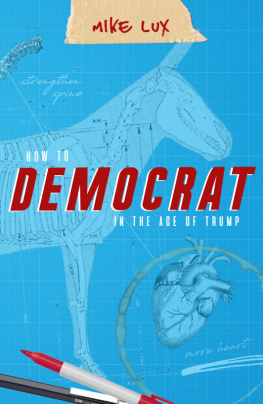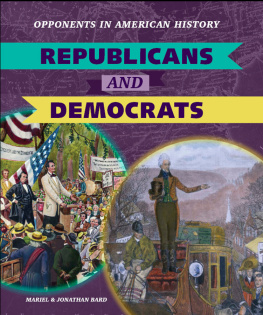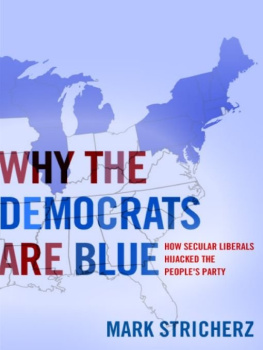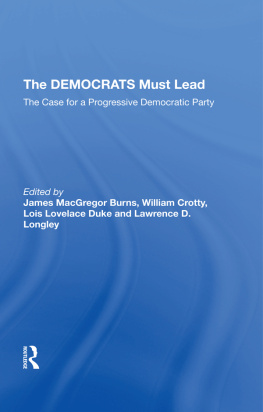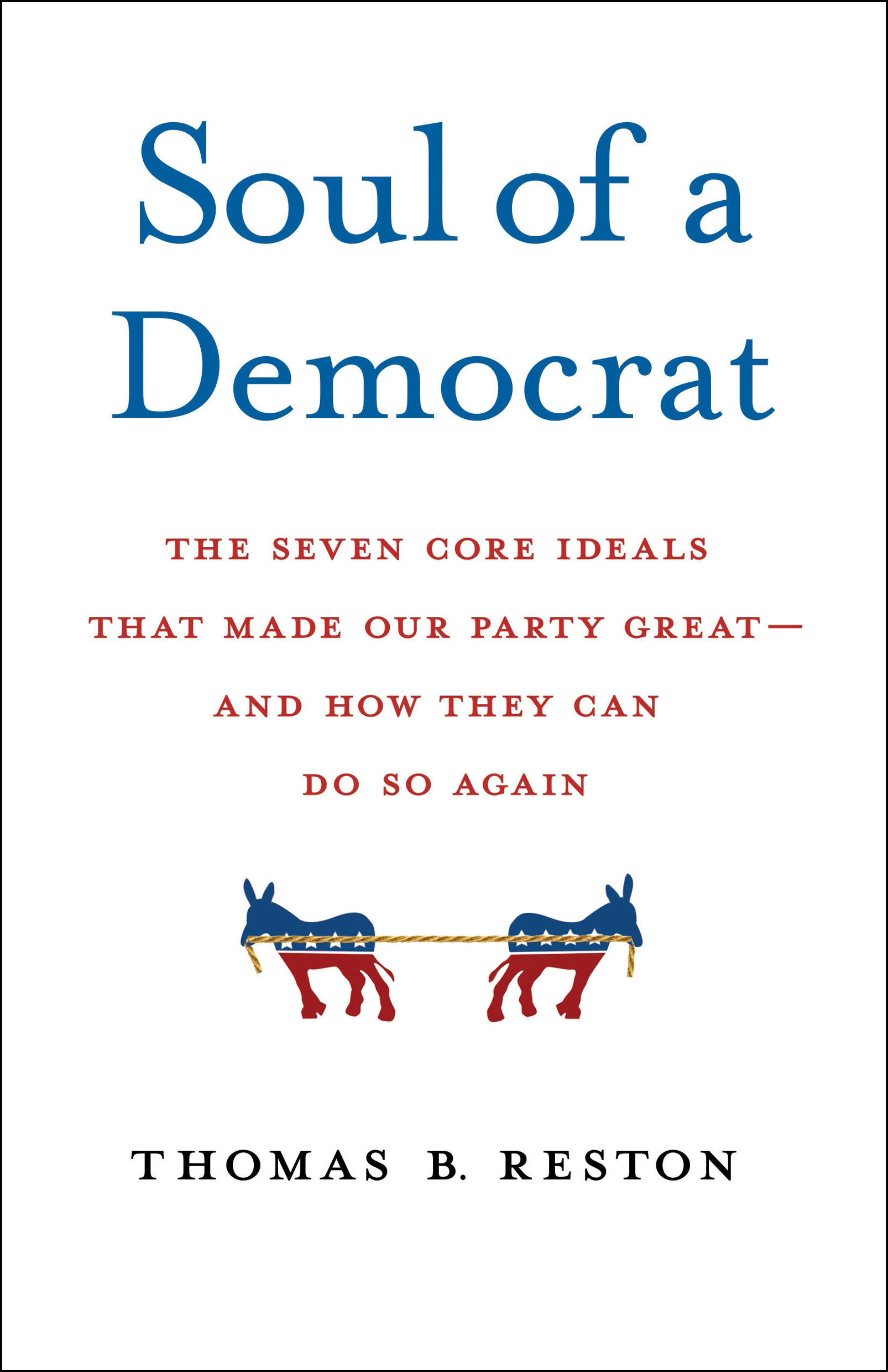Contents
Guide
Pagebreaks of the print version
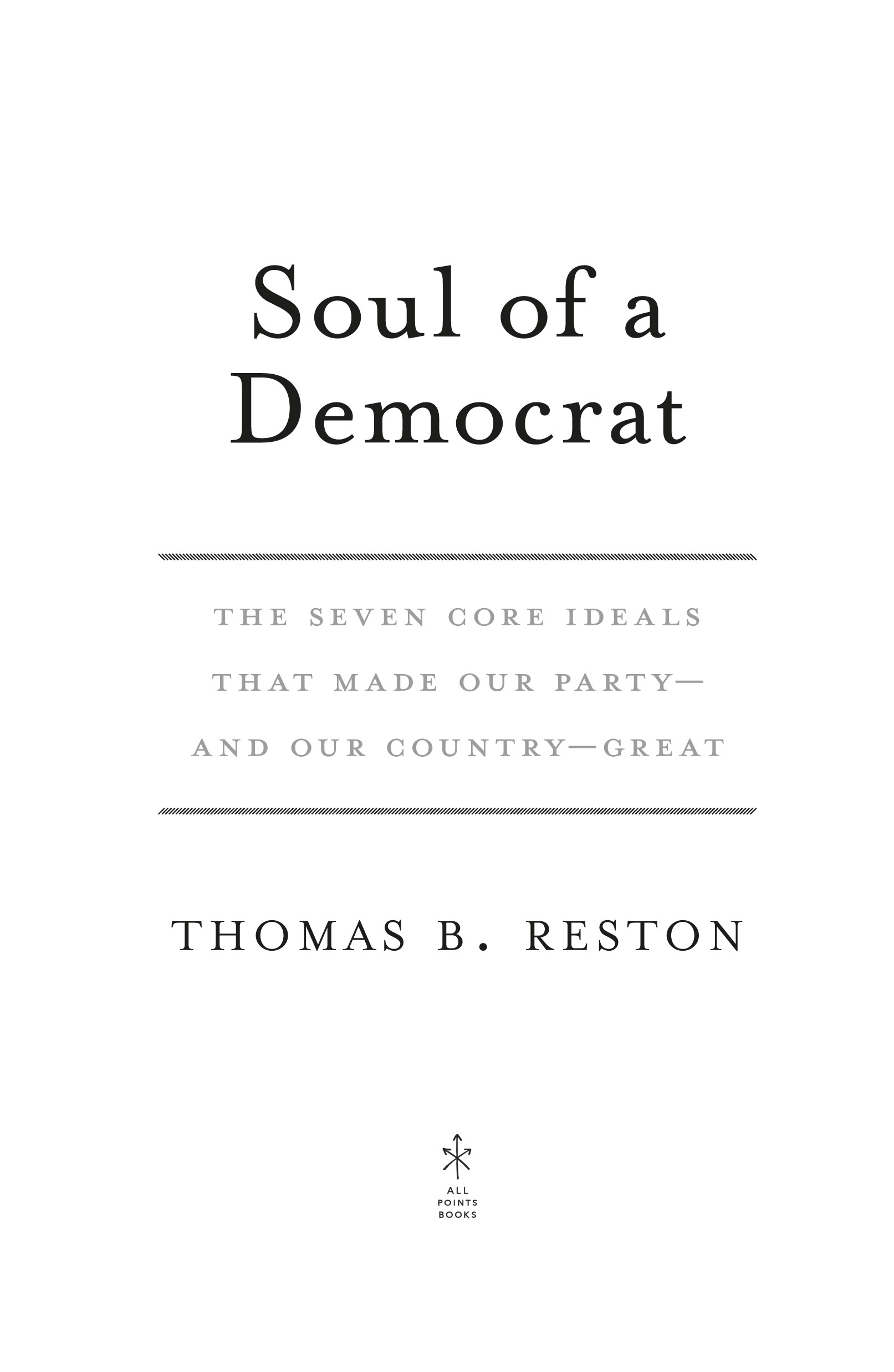
The author and publisher have provided this e-book to you for your personal use only. You may not make this e-book publicly available in any way. Copyright infringement is against the law. If you believe the copy of this e-book you are reading infringes on the authors copyright, please notify the publisher at: us.macmillanusa.com/piracy.
This book is dedicated to my father
JAMES B. RESTON
of
The New York Times
Journalist
Patriot
Amiable Skeptic
Expositor of Democracy
Immigrant
Devoted Parent
With Abiding Love
Herein the answer to this single questionlies the master key that opens the way for Democrats to return to power.
If the Democrats find the answers to all their other questions, about what the details of their policy proposals should be, about how to find the candidates and raise the money and get the voters to the pollseven about who the Republicans areand yet cannot locate their soul, they will fail themselves, and fail the country.
To get back to power, the Democrats first have to get back to their own soul.
The Democratic Soul : Deep politics is my theme. I am interested in the civic faiths that remain and underpin everything else, the everything-else that is the stuff of temporary political maneuver. I am talking about beliefs so elementary and vital that they have defined the Democratshave answered the questions of who the Democrats really are, and why, and how and why they differ from their opponentsdown the generations through all the cycles of American history, from Thomas Jefferson reading alone in his study at Monticello right up to the moment you hold this book in your hands. I am talking about how to achieve perspective on todays political struggle. I am talking about the roots and anchors of the Democratic Party.
This, therefore, is a book about the fundamentals of politics, and the fundamentals do not go away. Yet the truth is that today, these fundamentals are the very things that too many Democrats have lost sight of. Has the Democratic Party lost its soul? It is a question of groundwork politics, and it contains many other profound questions about the meaning of democracy in America today. These turn out to be serious questions, and very tough ones. Democrats have had trouble answering the questions this book will raise. These are questions, in fact, that they have ceased even to ask of themselves.
And this is the reason why, in 2016, when the Democrats could no longer tell their fellow citizensin emotional and simple and coherent and blunt and honest wordswhat their own meaning was for todays politics, these unanswered questions finally, after some five decades of drift, sank the Democratsat all levels of our national lifeand opened the door not only to a Donald Trump presidency, but also to the prospect of a fundamental realignment of Americas two great political parties, with the Democratic Party in permanent opposition, and in permanent minority.
This worries me a great deal, and it is the reason why I wrote this book. I am a Democrat. I have been a Democrat all my life. I have never voted for a Republican. I am a Democrat today, and I shall remain a Democrat. I am not about to leave, and I do not claim that my party has left me. I like my party and the people in it. I wrote this book because I want to see Democrats succeed. Rather than offering specific campaign advice, this book presents the perennial themes and values of our party that individual candidates may apply in different ways, at different times, in different parts of the country.
IN SEARCH OF THE DEMOCRATIC SOUL
When the voters visited calamity upon the Democrats on the night of November 8, 2016, and we had been thrown out of the White House, checked in the House of Representatives, staggered in the Senate, a majority on the Supreme Court was suddenly and frighteningly placed in play, and, catastrophically, we had been expelled en masse from the statehouses and governors mansions so that we remained in control of only six out of fifty state governments in the entire nation, I thought, surely, now, Democrats will pause to consider who we are and where weve gone wrong; surely we will mount a searching re-examination of what our party really stands for, down deep; and maybe if the self-assessment is honest enough, we will find new ways to recapture the trust of our countrymen.
It never happened.
Instead, after the election was over, Democrats returned to exactly the same strategy that had brought us defeat in November. We focused exclusively on the man who had beat us. He became, for us, a monomania. It was an easy way to unite the Party, for there were very few Democrats who liked Trump, but it was too easy. It was important, of course, to take into account the meaning of Trumps election as president. It is the duty of an opposition to oppose, so yes, the Democrats needed to mobilize in order to bring ourselves back; yes, the Democrats needed to resist. I, too, am a resister.
But in fact, the result of all this is that the political conversation of the nation has coarsened way beyond the experience or comprehension of any generation of living Americans, and it has hurt the country. It is the political conversation itself that is important. The conversation is the measure of the civic health of our country. The passions of our times have become intense because of Donald Trumps enormities. We are all now partakers in the conversation that he engineered, and regrettably, this includes Democrats as well as Republicans. He framed the conversation. We argued it on his terms. The alarming thing is that in the period after the Republicans took control of the federal government in January 2017, Democrats often succumbed to the temptation to sink to the level of the pronouncements emanating from the Trump White House. And so, sometimes, it seemed as if any argument, any means, any last-chance bitter epithet could get the green light from us, as well as from him. In our rush to naked partisanship, we could cast aside our deeper instincts, our higher principles, and our own broader hopes for the country. Too often, we allowed ourselves to become corrupted by the discourse. Our own sometimes eager and acrid and repetitive contributions helped to debase a conversation so unworthy of, and so insulting to, the American people. There was a different waya better and more effective wayopen to us, and we didnt take it.
Somehow, the Republic will survive President Trump, no matter the length of his tenure in office. This, too, shall pass. My argument here is about something more lasting, more difficult, and more important than Donald Trump. My argument is about the meaning of the Democratic Party . This is the question that can no longer be put off. This question has to be faced up to, right now. And to answer this question, we must look to ourselves. The first thing we need to do is pick up the mirror.
In thinking so obsessively about Trump and the Republicans, the Democrats missed the opportunity to think seriously about themselves. What truly matters is this: the problems that are fundamental for the Democrats lie within the Democratic Party itself. These problems were there long before Trump. They will remain long after Trump. They cannot be magically erased, even should the Democrats score a landslide victory in a single set of off-year elections. They are problems that could prove life-threatening for the Democratic Party, philosophically as well as numerically, unless the Democrats come to terms with them. And as opposed to the doings of Trump and the Grand Old Party, these are questions that Democrats have absolute control over. Yet these were the very problems the Democrats chose to ignore. All of this was a major failure of Democratic imagination. The consequences for our partyand for our countryare ominous.


